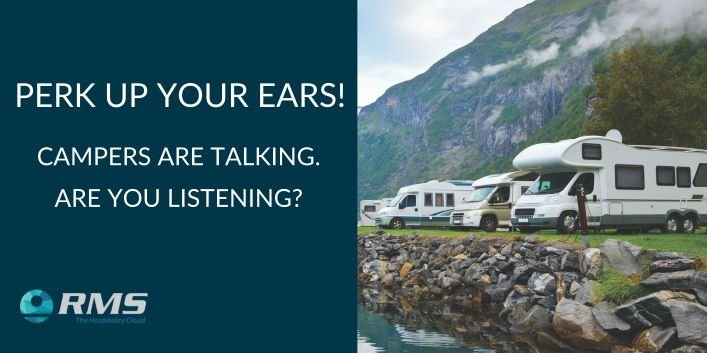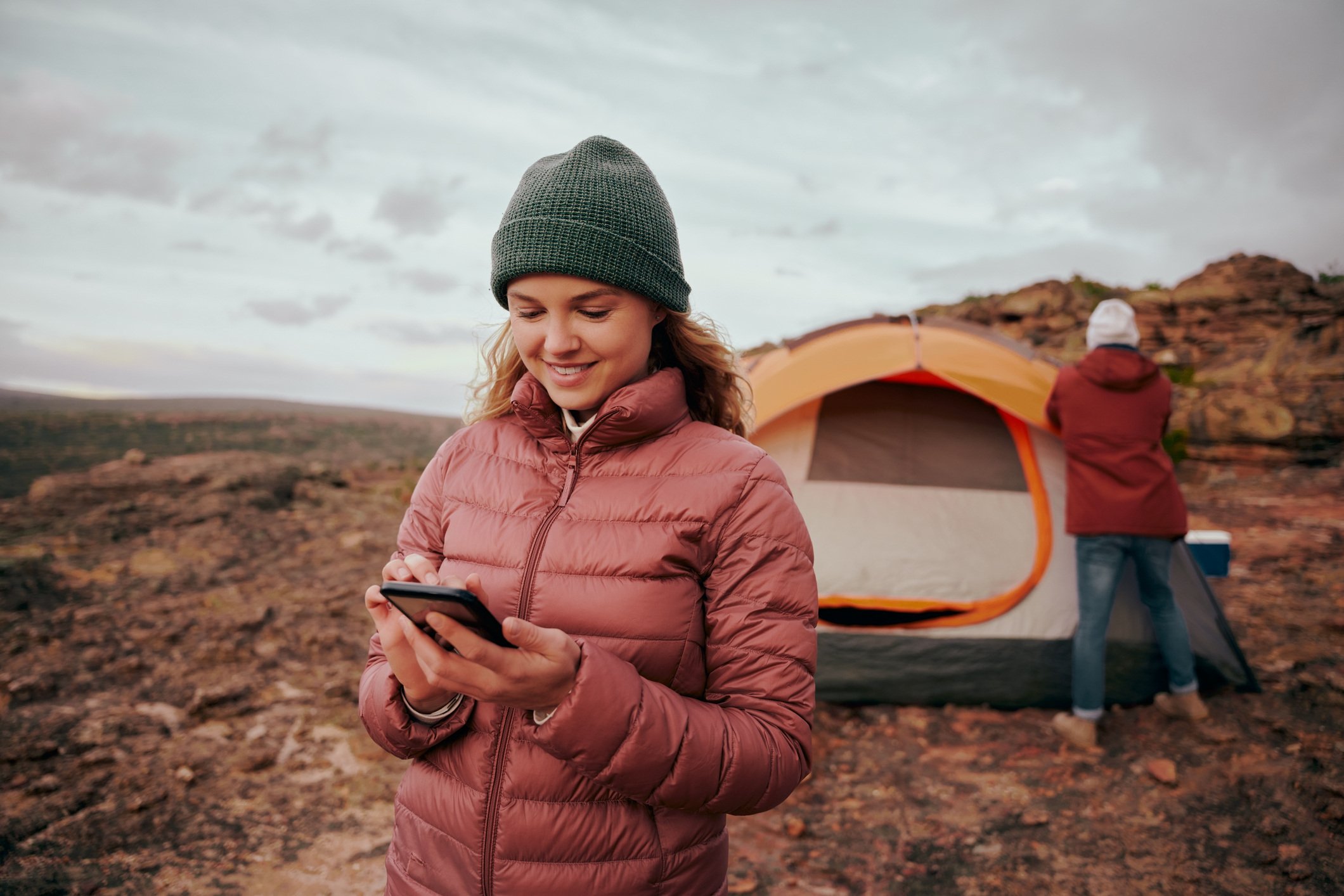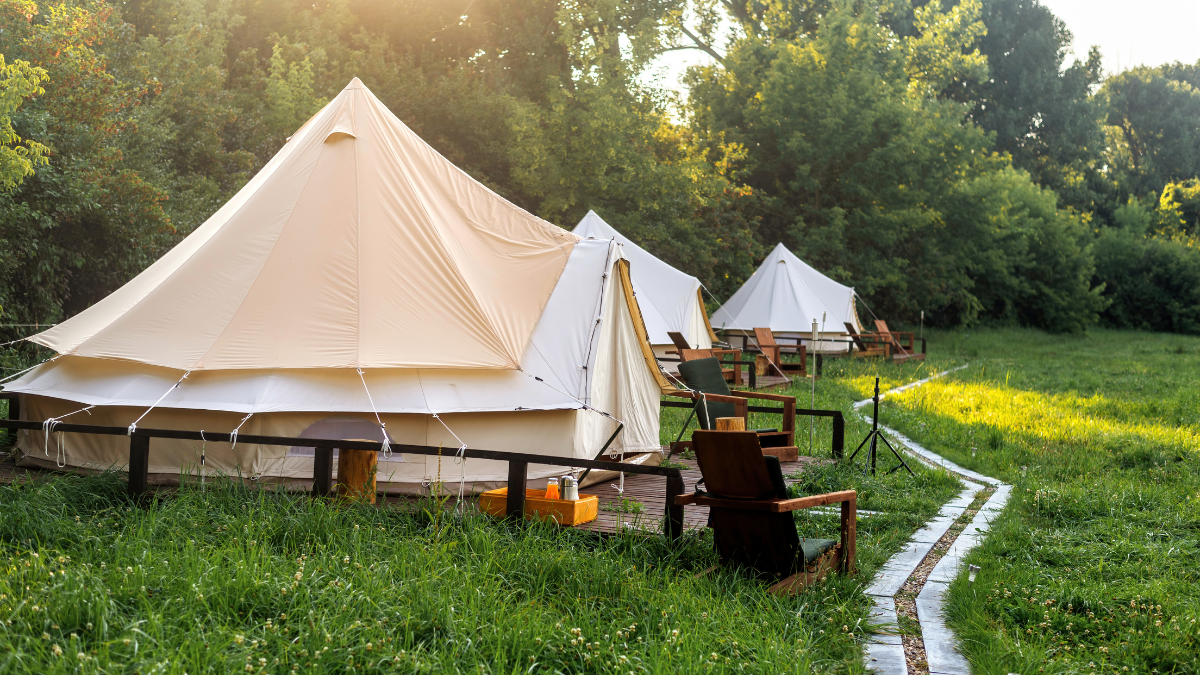The outdoors is calling, and millions upon millions of U.S. households are heeding the call by camping. In fact, according to the latest North American Camping Report, more than a million new households have started camping every year since 2014. The reasons for this surge aren’t surprising — people are finding they need more balance in their lives and camping provides it.
Especially when campgrounds offer the features, attention and care that campers expect. And if a campground is everything they hoped it would be — you can bet those visitors will let people know. In the same spirit, if someone finds issues with a property, that’s going to get out, as well. In an age where reputation is everything, campground owners (and managers) obviously want to go for the former over the latter. Because when those millions of campers are looking for their next camping adventure, you better believe they’ll be asking for recommendations — and poring over reviews.
We spent some time perusing a variety of reviews on The Dyrt and Yelp to see the most common kudos and complaints visitors shared. If you’re associated with a campground or park, you’ll want to take a look because the findings aren’t surprising, but they’re definitely interesting.
CAMPGROUND CLEANLINESS
This is a biggie among campers and reviews went both ways on this one. Pristine campgrounds with diligent staffers had overwhelmingly glowing reviews — as expected. The upside to beautifully maintained grounds is that visitors are more likely to respect the property and rules. On the other side of the coin, reviewers who found things like overfilled garbage receptacles and unkempt grounds were quick with the one-star online rating. And you definitely don’t want that. One bad review can impact your overall rating enormously. (For advice on that scenario, scroll to the end of this article.)
DIRTY RESTROOMS
This goes along with cleanliness but from the high number of mentions online, we felt it deserved its own section. Camping restrooms do get dirty, especially the primitive “outhouse” variety. However, there are ways to keep them clean. With regular restrooms, it’s not rocket science — the trick is to have a regular cleaning schedule and to stick to it. Outhouse maintenance is a little more involved. First off — yes, it should be on a regular cleaning schedule, as well. But to help with odor, think about spreading something environmentally friendly like cedar shavings for a pleasant smell that doesn’t affect decomposition. Also, install a vent pipe to lead gases from inside the chamber, through the roof, and into the open air. It’s a dirty subject but according to online reviews, people are definitely talking about it.
DOG FRIENDLINESS
In the U.S. especially, people love bringing their pets along on their travels. More often than not, campgrounds welcome pets, and it’s a key topic on both The Dyrt and Yelp. Aside from reviews praising dog-friendly properties and highlighting special features (waste bags, depositories, dog parks, splash pads), a lot of people also wrote about a lack of transparency regarding restrictions and rules. Be sure to let people know the pet rules when they book a site instead of springing it on them later. For example, one reviewer cited a visit to a dog-friendly property that highlights beach access. Yet when they arrived at the beach, they learned it didn’t allow dogs. Be upfront about details, such as “no-dog” areas, waste disposal info, leash rules, and possible fines so there are no surprises.
HIKING ACCESS
Probably the number one mention on both review sites is hiking. In the last couple of years, hiking (50%) outranked fishing (44%) as the most popular camping activity, and reviewers had a lot to say about their experiences. Some complaints we came across included litter on trails, no forewarning about high tick-count areas, and unimpressive challenges. On the flipside, positive reviews reflected on breathtaking scenery, abundant wildlife, clearly-marked hike-difficulty levels, and excellent guidance from staff. What you should take from this is two lessons. 1) Fix what’s in your control (i.e. keep trails cleaner, post signs in high-tick areas). 2) If the trails aren’t impressive from a beauty or challenge standpoint, add a unique activity option to your property, such as a zip line or climbing wall.
SAFETY & AWARENESS
Safety matters. And many reviewers are quick to point out which campsites made them feel the most secure — and which did not. Having campground rangers checking on campsites throughout the day and night was a feature that influenced a lot of higher ratings. It reflects a level of care that doesn’t go unnoticed. As one five-star Yelp review stated about a Santee, California campground: “[the rangers’ continuous presence] made me feel safe and gave me reassurance that no nonsense would be tolerated!” Negative reviews spotlighted problems, such as theft (firewood theft was mentioned several times!), invasive issues like late-night noise, and a general lack of oversight regarding park rules. To quash those negatives, enforce campground rules. If you don’t have a ranger staff on board, consider finding quality volunteers to help out.
CRAMPED CAMPSITES
Everyone understands the desire — especially in busy seasons — to maximize your occupancy rates. But situating campsites too close to each other is not the answer — at least if you’re looking for positive commentary. Review after review included tidbits about feeling like sites were practically “on top of each other” — and being so close, they could hear their neighbors quarreling. Obviously, campers in prime season know that complete privacy is an implausible expectation. However, you should have some sites that offer a bit more seclusion for those who specifically request that luxury.
BE TRANSPARENT WITH EXTRA CHARGES
Surprise charges also stands out on the review sites, with campers offering plenty of examples, ranging from fines for failing to dispose of trash to unmentioned fees for changing a reservation. Fees and fines are both perfectly acceptable at campgrounds but just make sure they are spelled out during the reservation process, and perhaps even in a follow up confirmation email. If you do that, you’ll have a perfect response to a less than flattering review (see below).
As we said before, reputation is everything. So, while reviews count a lot — so does the way you handle them. Responding professionally and kindly is key. And it was great to see so many campgrounds doing exactly that, especially on Yelp. Thanking the positive reviews and offering a courteous reply to the negative shows that you’re paying attention and you care. Even if a star is knocked off your five-star rating for an unfavorable comment, people will notice your response. And if it’s done right, your reputation will benefit, not suffer.
What has your experience been with the impact of online reviews? Let us know!




